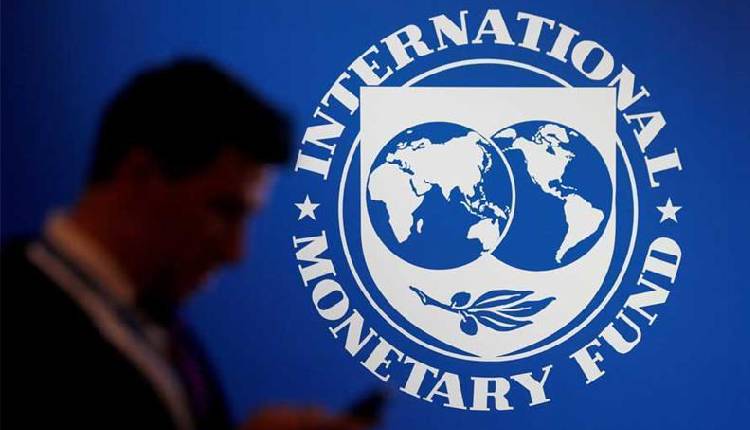Egypt gets initial approval for $820m IMF loan disbursement
The International Monetary Fund (IMF) and Egypt have reached an initial agreement that would give the country an access to around $820 million loan upon board final approval, the fund said late Thursday.
The IMF’s Executive Board is expected to consider the third review of Egypt’s EFF-supported programme “in the coming weeks.”
An IMF mission led by Ivanna Vladkova Hollar held in-person discussions with the authorities during May 12-26 in Cairo and virtually thereafter, leading to reach a staff-level agreement on the economic policies needed to complete the third review of the Extended Fund Facility (EFF) arrangement.
“While geopolitical tensions and their impact on Egypt remain challenging, the authorities have stayed the course to preserve macroeconomic stability through fiscal discipline, tight monetary policy, and a shift to a flexible exchange rate regime.” Hollar said in a statement. “These efforts are beginning to deliver an improved outlook, improved FX availability, inflation starting to slow down, and signs of recovery in private sector sentiment.”
However, Hollar said downside risks surround the country’s economic outlook, which continues to be affected by spillovers from the tensions in Gaza and risks of persistence of trade disruptions in the Red Sea, negatively impacting Suez Canal receipts.
Boosting the private sector’s role
Hollar further said that strong policies are critical to address key risks and domestic structural challenges, including the need to boost the role of the private sector in economic activity, and addressing the challenge of high inflation, elevated government debt and high gross financing needs.
“In this context, the authorities and the mission agreed that the implementation of the government reform plans as articulated in programme commitments will be key to maintain macroeconomic stability and enhance private sector-led growth.”
Stronger fiscal consolidation
The Egyptian authorities continue to pursue prudent fiscal policies, Hollar noted. “Achieving their ambitious primary balance targets would strengthen public finances and contain debt sustainability risks.”
Moreover, she stated that there is a need to improve the composition of fiscal consolidation through stronger domestic revenue mobilisation efforts, which are critical to generate fiscal space for the expansion of social programmes and additional health and education spending to support the authorities’ objective to achieve higher and more inclusive growth.
“The mobilisation of more domestic resources, including through a rationalisation of VAT exemptions, is an important element in this strategy. Meeting fiscal objectives will also require steps to contain fiscal risks, including those associated with state-owned companies in the energy sector, which need to gradually restore cost recovery.”
The IMF official said further efforts are needed to enhance debt management in order to contain gross financing needs and improve debt reporting and investor relations. “Continuing the divestment programme could help improve efficiency and attract new investment, while generating additional resources for the Treasury.”
Monetary policy needed to remain tight
Furthermore, Hollar said the mission agreed with the Egyptian authorities that monetary policy conditions need to remain tight in the short term to help bring inflation toward the Central Bank of Egypt’s (CBE) target.
“The mission was encouraged by the central bank’s ongoing efforts to enhance its operations (including through the use of forecasting models and stronger communication), to reinforce progress toward a full-fledged inflation-targeting regime. Strengthening financial sector resilience, as well as governance practices and competition in the banking sector, should also be key priorities.”
Ras El-Hekma deal a positive economic development
“Since the exchange rate unification in March, financing conditions have improved.” Hollar said, saying the recent “Ras El-Hekma investment deal is a positive economic development, and the mission encouraged the authorities to continue disclosing information about this project.”
Considering the sizeable potential capital inflows, the IMF official urged that the proper management will be critical to avoid any disruptive macroeconomic challenges that could undermine the authorities’ objective to diversify the Egyptian economy and achieve more inclusive growth. “To this end, the authorities are developing contingency plans to adequately address these challenges, as needed.”
State-owned enterprise reform
The Egyptian authorities are making progress on their structural reform agenda, Hollar said. However, there is scope “to accelerate the implementation of the state-ownership policy to level the playing field and increase private sector-led growth, and to implement reforms to enhance the business environment, including efforts to automate and modernise trade facilitation procedures to increase efficiency and remove trade barriers.”


